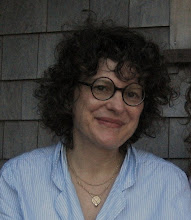
You will no doubt wonder why I am reading Born to Run: A Hidden Tribe, Superathletes and the Greatest Race the World Has Ever Seen by Christopher McDougall when the only time I ever ran was senior year in college when we had to run a mile to pass the Physical Ed requirement. I think my wheezey panting burst of speed in that final mile when I saw the coach looking at me was one of the highest physical achievements ever in sports history. So I chose to go out on top and retired---some might say with dignity---from the sport. Let others have a chance at running greatness, I was content to lie on my sofa with a Diet Coke reading a book. Preferably not a book about running.
I heard this book was about the Tarahumara indians in the Copper Canyon in Mexico though so was interested. It turns out it is a fascinating book about running: the crazy people who do 100 mile marathons, scientists, the people who design sneakers, people who run barefoot, Olympic athletes and the mysterious Tarahumara who really are still all a mystery by the end of the book.
McDougall is no anthropologist, he's a sports writer and the writing is pretty awful in a magazine writing sort of way with lots of manufactured cliff hangers and devices to keep you reading. One of his most typical phrases is "And the worst was yet to come...". But in spite of his writing some of the stories are truly very engaging and some of the thinking on different styles of running are pretty convincing.
McDougall himself is a runner and he set out to discover why he kept getting injured and other people, the Tarahumara for instance, never get hurt and run huge distances. I think he answers that question. The question as to why anyone would go out to do a 100 mile run while they could lie on the sofa reading a book about people doing 100 mile runs goes unanswered.




